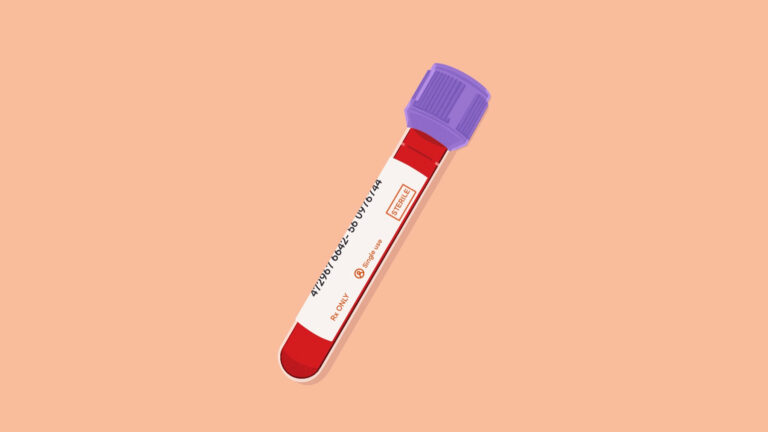Health optimization is moving into the mainstream.
At the same time, do-it-yourself diagnostics, pay-as-you-go primary care, and concierge medical services are replacing trips to the doctor’s office.
As these paths converge, high-performance health promises to redefine the future of well-being.
How We Got Here
Not long ago, the idea of regular exercise or routine self-care was foreign.
As recently as the 1970s, running was considered a weird hobby. Along those lines, a 1978 edition of New York Magazine dubbed people who exercised as “The Physical Elite,” writing:
“Now it is clear—guilt-inducing to the rest of us, exhilarating to those who are In—that a new class has come among us that defines elitism in an entirely different manner.”
Later, in the 2010s, fresh-pressed green juice and $30-dollars-a-pop fitness classes epitomized the rise of wellness culture. Pointing to Goop’s popularity, The Cut described a “wellness epidemic,” where obsessing over self-care was a “new dimension for luxury.”
More recently, as we detailed in Issue No. 78, The High-Performance Lifestyle, the focus has shifted from woo-woo wellness to personal well-being. A step further, sparing no expense, this new era of health optimization borders on opulence.
Mail-Order Diagnostics
From food sensitivity and fertility to hormone levels and the microbiome, diagnostic test kits are in high demand.
- The point-of-care diagnostic test market is expected to top $81B by 2028.
- Last year, venture funding for health diagnostics startups reached a record $4.8B.
In particular, the direct-to-consumer segment is booming. Explaining this trend, famed investor Fred Wilson recently wrote:
“Driven by advances in technology, a computer in everyone’s pocket, ongoing changes in the healthcare system accelerated by the pandemic, among other forcing functions, we are seeing more and more healthcare being accessed in our homes vs in the doctor’s office.”
On the popularity of at-home test kits, Everly Health (formerly Everlywell) CEO Julia Cheek said, COVID-19 tests aside, “Now, more than ever, there is a strong case for self-collection at home for critical, preventative screening, and testing across all lab markers.”
And Cheek should know — her at-home lab testing company saw sales jump 300% last year.
In early 2021, Everlywell raised $250M in capital over two funding rounds. Then, in March, the company acquired PWNHealth and Home Access Health, rebranding to Everly Health and earning a $2.9B valuation in the process.
Experiencing similar growth, and echoing Cheek’s sentiment, LetsGetChecked CEO Peter Foley said: “Everybody in the world knows what home diagnostics and telehealth is now.”
Last year, his at-home testing company’s revenue was up 15x as 1.7M customers used the platform. Leveraging this growth, in June, LetsGetChecked added $150M in funding at a $1.5B valuation.
Elsewhere, since early ‘20, at-home blood testing startups Base ($3.5M), Thriva ($5.5M), and Getlabs ($3M) added new funding. And last month, at-home lab upstart Kit was acquired by healthcare technology company Ro.
But experts are wary of the at-home testing craze. Everly Health, for one, has been subject to scrutiny, with some of its tests labeled a “wellness gimmick” and “pseudoscience 101.”
Hoping to shake that perception, Silicon Valley startup COR is pioneering a new approach.
Founded by former Apple platform director Bob Messerschmidt, who played a prominent role in developing Apple Watch, COR is an at-home device for analyzing blood samples.
Combining a weekly fingerprick with real-time results and in-app guidance, COR tracks changes in blood chemistry caused by fitness and nutrition interventions.
Beyond wearables or mail-in diagnostics, Messerschmidt said COR’s integrated testing protocol is the future for individual-centered health.
Premium Primary Care
Upgrading in-person visits to the doctor’s office, premium primary care is catching on.
In March, Forward Health raised $225M for its network of membership-based preventive primary care clinics. Billed as the “Apple Store of doctor’s offices,” Forward is valued at more than $1B.
An expense not covered by insurance, Forward members pay $150/month for a high-touch, tech-enabled experience that includes biometric body scans, genetic testing, and on-site blood testing.
From the intake exam alone, it’s clear: Forward is different. A battery of tests capture some 500 unique biomarkers that are used to create a proactive, personalized health program. And, compared with the typical 15-minute doctor’s visit, Forward members spend an average of 60 minutes with their physician.
A similar model, Parsley Health offers virtual and in-person care with a focus on holistic health and wellness.
According to Parsley founder Dr. Robin Berzin, the company prioritizes lifestyle behaviors and preventable conditions, “looking at a patient’s sleep, fitness, nutrition, and mental health to determine health optimization.”
Reimagining the drab, sterile medical office, Parsley clinics feature hardwood floors, natural light, and greenery. From the individualized treatment to the aesthetic, it’s all part of the elevated experience that runs members $175/month.
Making premium clinics look affordable, and their services seem underwhelming, concierge medical services were a pandemic luxury for the wealthy.
Sollis Health, a private medical practice, charges $3–5K/year for unlimited telehealth consults, house calls, and visits to emergency room-equipped health centers.
As lockdowns went into effect, membership doubled to 4,500 patients. To meet demand, Sollis opened a new facility in Los Angeles and teamed with upscale apartment complexes in New York City to offer in-home care.
Providing hormone replacement therapy, immune-boosting IV drips, and lab tests, Evolved Science also expanded its concierge services last year. Separate from the cost of treatment, members pay a $12K annual fee.
At Private Medical, founder Dr. Jordan Shlain described keeping pace during the pandemic as a “full-on war-room situation.” The elite of the elite, this practice keeps a low profile, spends nothing on advertising, and new patients come strictly by word of mouth. Here, members pay $40K to $80K per family to have Private Medical manage every aspect of their well-being.
Looking Ahead
Beyond blood tests and primary care, preventative MRIs, smart toilets, breath- and saliva-based diagnostics, and ambient sensors are transforming health optimization.
The hope? Innovation will increase access to care, improve its effectiveness, and also reduce the cost. For now, it’s a work in progress — and the gap between the haves and have nots is widening.
A sign of what’s to come, the pursuit of optimal health will intersect with longevity science in an effort to redefine aging.
🤩 Exer-train-ment
Combining effective workouts and engaging content, obé Fitness aims to bring “exertrainment” to the masses.
On the Fitt Insider podcast: obé co-founders & co-CEOs Mark Mullett and Ashley Mills joined us to discuss the company’s digital fitness platform, including their strategy for building community, enlisting top instructors, and hosting in-person events.
We also cover: obé’s new $15M investment that attracted CAVU Venture Partners, Athleta, WW, and Samsung Next. Fitt Insider also participated in this funding round.
Listen to today’s episode here.
🤖 The Metaverse of Fitness
Facebook continues to focus on VR fitness.
According to Bloomberg, the social media giant is exploring the idea of syncing workout data from its Oculus virtual reality headsets with Apple’s Health app.
While there’s no guarantee this partnership comes to fruition, it does signal Facebook’s ongoing interest in virtual reality workouts and health more broadly.
- Early this year, Oculus launched a fitness-focused ad campaign.
- In June, Facebook CEO Mark Zuckerberg said VR is the future of fitness.
- Facebook is set to debut its first health-tracking smartwatch in summer 2022.
A whole new world. Facebook recently announced it was forming a new division within the company to bring the metaverse to life.
The Metaverse is a kind of virtual shared space where physical, augmented, and virtual reality collide. According to Zuckerberg, Facebook will transition from “being a social media company to being a metaverse company.”
Why it’s interesting: As we explained in Issue No. 90, The Metaverse of Fitness, the future of digital workouts looks more like Fortnite than Peloton.
In the year since publishing that article, a growing number of gaming-inspired fitness companies, from Zwift and Ergatta to FitXR and Supernatural, have gained traction. Now, even Peloton is getting into gaming.
Punchline: More and more, fitness and gaming are converging. And Facebook could play a key role in shaping the evolution of Fitness 3.0.
🌿 Indoor Farming
Alt-foods like plant-based meat or cow-free milk are trending. Next up, indoor growers are using hydroponics and vertical farms to revolutionize produce.
What it is: The latest in agritech, indoor farms use technology to grow fresh fruits and vegetables — sans soil and sunlight.
Planting seeds. Last year, global funding for indoor farming startups topped $1.9B, nearly tripling investment in 2019.
- Bowery Farming announced a $300M Series C in May, valuing the company at $2.3B in the largest-ever vertical farm deal.
- Late last year, Jeff Bezos-backed Plenty secured $140M in a Series D funding round.
- AppHarvest went public via SPAC in January at a valuation of $1B. Later this year, AeroFarms, Local Bounti, and Infarm are set to follow suit.
The upside. Indoor farms grow food using less resources than traditional farms. And urban growers, like Plenty’s 95,000-square-foot warehouse in Southern California, reduce delivery times from one week to one day.
Plus, with post-pandemic grocery shoppers eating more organic and sustainable foods, hydroponics and vertical farms seem well-positioned to reap the profits.
The downside. Despite huge funding rounds, the returns have been mediocre. The top 20 indoor farm startups have just $135M in retail sales, and most remain unprofitable. AppHarvest, for instance, saw its stock price wither since it went public.
Others are skeptical of the nutritional value of indoor-grown foods, which use nutrient-dense water instead of soil.
Dave Chapman, Vermont farmer and executive director of the Real Organic Project, questions the long-term impact on our dietary health:
“What will the health outcomes be in two generations? It’s a huge live experiment and we are the rats.”
Punchline: Despite high technology costs, nutritional uncertainties, and more, investors are all-in on indoor farms. Pending further innovation, we may well be on the edge of an agricultural revolution.
In the meantime, keep an eye out for vertical farms providing greens at your local grocery store, or visit a fully functional urban farm installation to get a taste for yourself.
📰 News & Notes
- ReformRX readies a connected Pilates reformer.
- Capti prepares to launch its connected gaming bike.
- Hyperice acquires handheld meditation trainer Core.
- Strava tops 88M users, opens a new office in Dublin, Ireland.
- Sony Music sues Gymshark for misusing ‘hundreds’ of songs.
- Updated: 800+ job openings at top health and fitness companies.
💰 Money Moves
- Digital workout platform obé fitness landed $15M in Series A funding led by CAVU Venture Partners. Athleta, Samsung Next, and WW (formerly Weight Watchers) were among other prominent investors. Fitt Insider also participated in this round.
- Nutritional supplement maker Athletic Greens added new funding from SC Holdings and strategic investors including Lewis Hamilton, Hugh Jackman, and Peloton’s Robin Arzón.
More from Fitt Insider: In Supplements We Trust - Woebot Health, developers of an AI-powered mental health chatbot, raised $90M in Series B funding.
More from Fitt Insider: Mental Healthcare Goes Digital - Volava, the “Peloton of Spain”, raised $2.4M in funding from Inveready, JME Ventures, and Wayra.
More from Fitt Insider: Connected Fitness Goes Global - Plant-based food company NotCo secured $235M in Series D funding led by Tiger Global, valuing the company at $1.5B.
More from Fitt Insider: Meat vs. “Meat” - Nobell Foods, maker of plant-based cheeses, raised $75M in Series B funding led by Andreessen Horowitz, Bill Gates-backed Breakthrough Energy Ventures, and Robert Downey Jr.’s FootPrint Coalition Ventures.
- Peppy, a digital B2B platform for menopause, fertility, and pregnancy, closed a $10M Series A funding round led by Felix Capital.
More from Fitt Insider: Femtech 2.0 - Carbon Health, an omnichannel healthcare provider, raised $350M led by Blackstone’s Horizon platform.
- Rezzil, a UK-based VR sports training and analytics startup, closed a $2.75M investment, including backing from soccer pros Gary Neville, Tyrone Mings, and Thierry Henry.
More from Fitt Insider: The Athlete VC - Pangaea, a men’s skincare brand, raised a $68M investment led by Eurazeo and joined by Unilever.
More from Fitt Insider: The Next Wave of Men’s Wellness - Urban Remedy, a plant-based meal delivery company, raised $18M in Series D funding led by Manna Tree.
More from Fitt Insider: The Future of Meal Kits - Zone7, an AI-driven athletic performance platform, raised $8M in Series A funding.
More from Fitt Insider: The Quantified Athlete - MaxOne, a digital coaching platform for youth sports, landed $3.5M in a round led by Stadia Ventures and including pro basketball player Chris Paul.
- Vision Quest Velocity, an early-stage virtual cycling start-up, raised $3.4M in seed funding.






